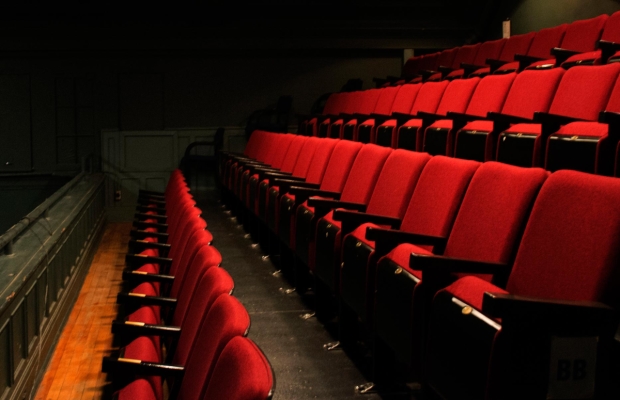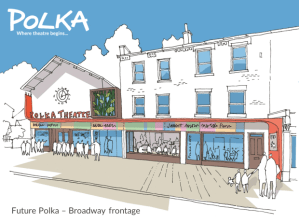We must make routes into arts jobs clearer
Following a conversation with director Javaad Alipoor, Daisy Bowie-Sell reflects on how creative jobs still aren’t seen as viable ways to make a living

What do you want to be when you grow up? It’s a question toddlers are often asked, and more often than not they will answer 'astronaut' or 'fireman'. (Although when I asked the fully grown Ciarán Hinds the question last week his wishful reply was 'footballer'.) When the question gets broadened out for teenagers and young people – What do you want to do with your life? What are you going to be? – the answer is more complex.
I talked to the enlightening director Javaad Alipoor last week, ahead of the London premiere of his excellent play The Believers Are But Brothers. It’s a brilliant piece – I saw it in Edinburgh – about (toxic) masculinity, the internet and radicalisation. And during our interview he said a few things which I’ve heard time and time again from theatre creatives.
Alipoor grew up in Bradford and went to university to do, of all things, theoretical physics. "I came from a Middle Eastern, Muslim household," he explained when I looked surprised, "and the vibe was: I went to university to do something serious which gets you a job." It makes sense – study something that will be guaranteed to give you a stable income (although theoretical physics was Alipoor’s left-field way of getting out of doing something like medicine and engineering). But Alipoor was also into literature, music and theatre: subjects he just "never thought possible" to earn a realistic living from.
It is essential that we break down the nuts and bolts of getting a creative job
Part of the reason for that is that Alipoor didn’t come from a household with experience of working in the creative industries. "We were one of two mixed race families in a white working class estate in Bradford, and there were a lot of us who had cultural ambitions, but there was no clear path of how you earn a living from it," he explained.
Most people don’t come from a family with arts connections. For Alipoor it was Bradford’s Asian Theatre School which changed things. It was run by Madani Younis – who is now artistic director of the Bush Theatre in London – and during his time as a youth and community worker, Alipoor crossed paths with the school. It was there he realised that making a living in the creative industries is absolutely a possibility. "[Younis] was this young man of colour, who made a living having things to say," Alipoor said.
Think about all those who entertained the idea of working in the arts, but never tried
Of course, I acknowledge that there's a whole separate conversation which needs to be had around support for people on those roads as well as salaries in the creative sector. Alipoor also did: "It’s clearly difficult to make a living as an artist, there’s all kinds of problems with it… It is tough, but welcome to 2018. There’s not really loads of solid jobs out there for you anyway." But without the initial ground work – showing young people what those jobs are and how to get them – we'll stay stuck at stage one.
Alipoor is just one example among many from people I interview. And these are people who have, in some form or other, managed to get through. Think about all those who, perhaps secretly, entertained the idea, but never tried.
It is essential that we break down the nuts and bolts of getting a creative job, and the variety of those jobs on offer. Only by understanding the routes into the creative sector – whether that be through community work, schools, university training or connecting directly with theatres – will young people begin to understand that working in the sector doesn't mean you have to make it as a Hollywood star. There are realistic ways to earn a living.
Rufus Norris’ piece in the Guardian today makes a well-written, vital case for changing the way we think about arts education. As an industry, country and society we cannot afford to neglect the teaching of arts subjects in schools. My point follows from this: that we also need to make all those different jobs – from wigmakers to digital consultants, to stage managers, to dramaturgs – visible. We need to make sure they are realistic options for young people. It's a way of protecting, enriching and making sure the creative industries thrive.

















